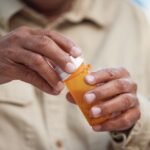You’ve worked incredibly hard to reach a point where alcohol or drugs no longer control every moment of your thoughts. Why are you now thinking about using substances again? Relapse is a very big risk factor in the recovery process from drugs and alcohol, and even those who are determined never to use again may find themselves at risk.
There are several key factors to keep in mind:
- Relapse is not uncommon and can even be considered a natural part of the recovery process.
- Relapse does not mean you’ve failed treatment but that you need more treatment.
- You always can sustain recovery, no matter how many relapses you have.
When you are thinking about using substances again in any way, reach out to a relapse prevention team immediately. Turn to your mentor, go to a meeting, or call your therapist at an addiction treatment center immediately.
What Does Addiction Relapse Occur So Often?
The risk of relapse is great, with between 40 and 60% of people at risk for it, according to the National Institute on Drug Abuse. As a chronic condition, addiction has no cure, meaning that there is a lifelong risk for relapse.
Relapse occurs due to the strong connection these substances create in the brain. When you consume alcohol or drugs and develop an addiction, the brain counts on these substances to create good feelings and a way to escape life’s challenges. When you enter recovery, the brain is forced to re-learn how to function normally without the presence of these substances. Even when the brain has stabilized, it remembers the power of substances and craves them, especially at difficult times.
Some of the most common reasons relapse happens include:
- Stress: If you do not have a way to reduce the high levels of stress you feel at home, at work, in relationships, or in any other area of your life, that stress will build up. Your brain may remember that alcohol made the stress easier to deal with, and that’s why it seeks out that substance again.
- Surroundings: For those who are in recovery, especially within the first few years, being around other people using the substance can make them prone to relapse. You may feel triggered to use because you remember the way this substance made you feel.
- Untreated mental health conditions: Those struggling with mental health disorders like anxiety, depression, or post-traumatic stress disorder and who do not receive help for them can find themselves at a higher risk for relapse as the symptoms of mental health disorders grow.
Relapse can be triggered by things, including people, places, objects, activities, moods, or stress that simply makes you think about using the substance again. That trigger can be hard to ignore.
Relapse doesn’t always happen, but there is a high risk that it could. As a result, you’ll learn relapse prevention strategies when you are in treatment to help you navigate these difficult situations.
It’s a misconception that relapse means treatment failed. Rather, view it as one of the steps in the recovery process. You would not blame a person with recurrent cancer or an injury that continues to worsen for having failed; you would encourage them to seek out additional help. The same applies here. You may need a higher level or additional types of treatment for addiction.
There Is Always the Opportunity to Recover From Addiction Relapse
Even if you’ve relapsed once or twice, you still have the ability to recover. Treatment is always available and can help to improve your ability to thrive.
With access to treatment, you may be able to ward off the onset of relapse again. What’s most important to remember is that if you are thinking about using or actively using substances again, you should seek out professional treatment immediately.
Your therapist and medical team can help you:
- Address any untreated mental health disorders
- Examine your stress management abilities
- Tackle any health complications that could be putting you at risk
- Increase the types of behavior therapies that can help with drug addiction treatment
- Provide you with resources to alleviate the stress, pain, pressure, or other concerns that put you at risk for relapse
Don’t wait to get help for addiction relapse. If you feel like using, are romanticizing your past drug or alcohol use, or are finding yourself drawn to situations where the substances are present, that’s a clear indication you need help.





